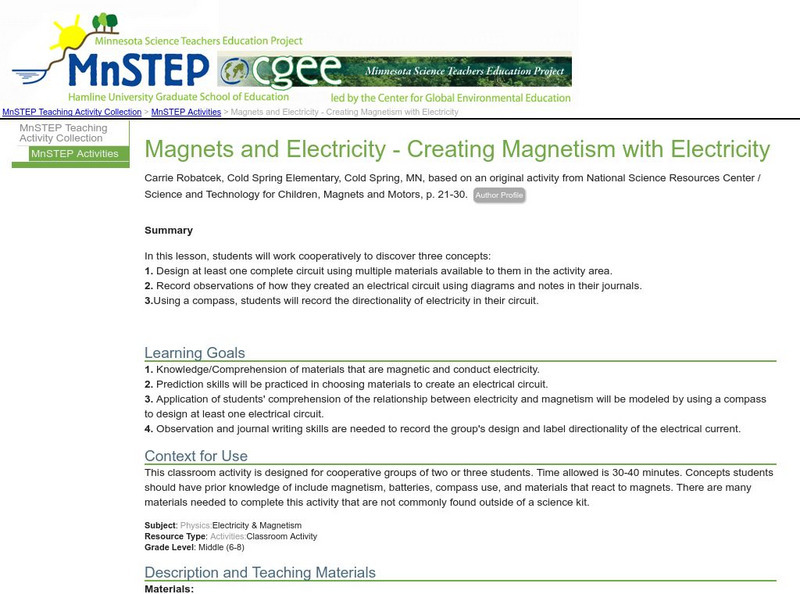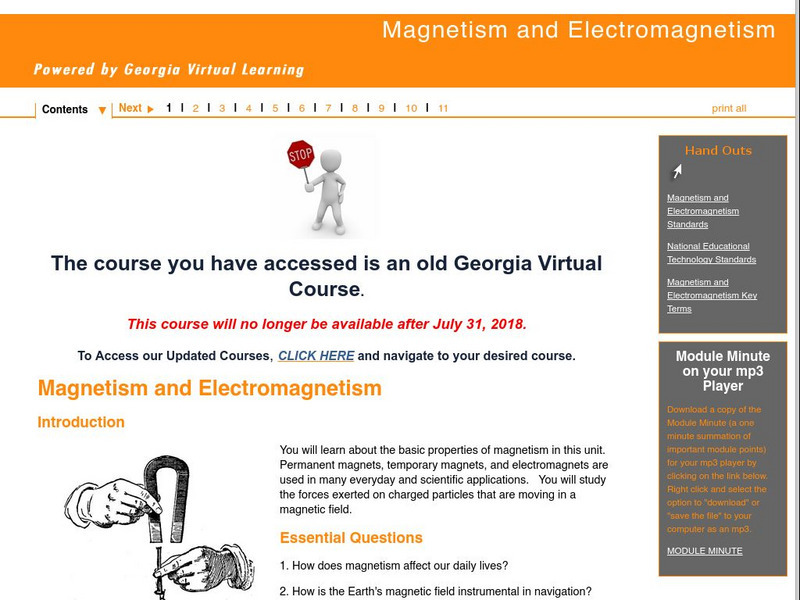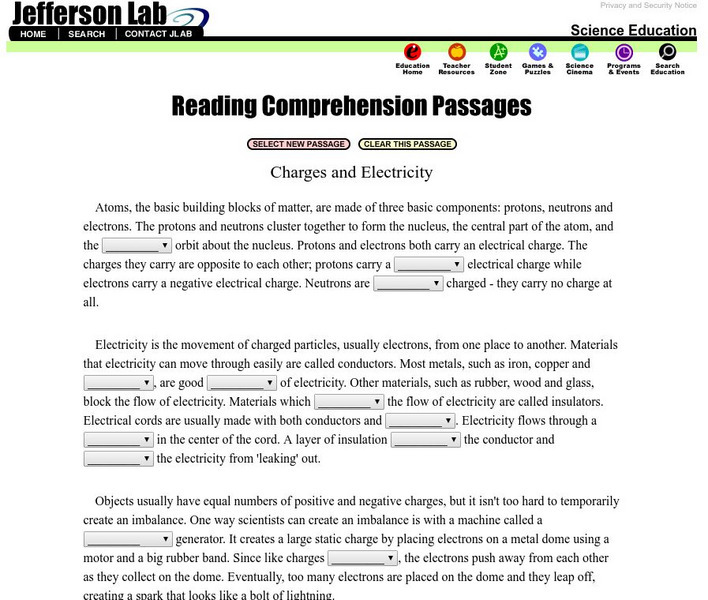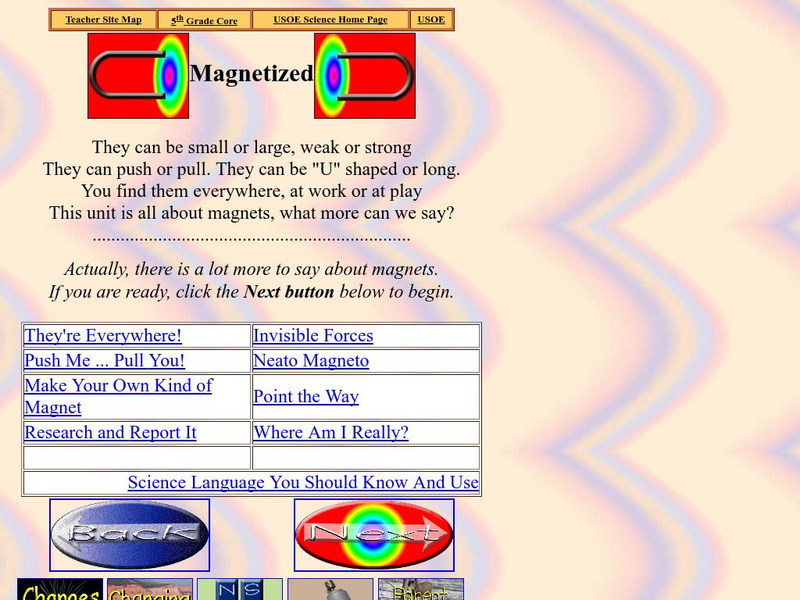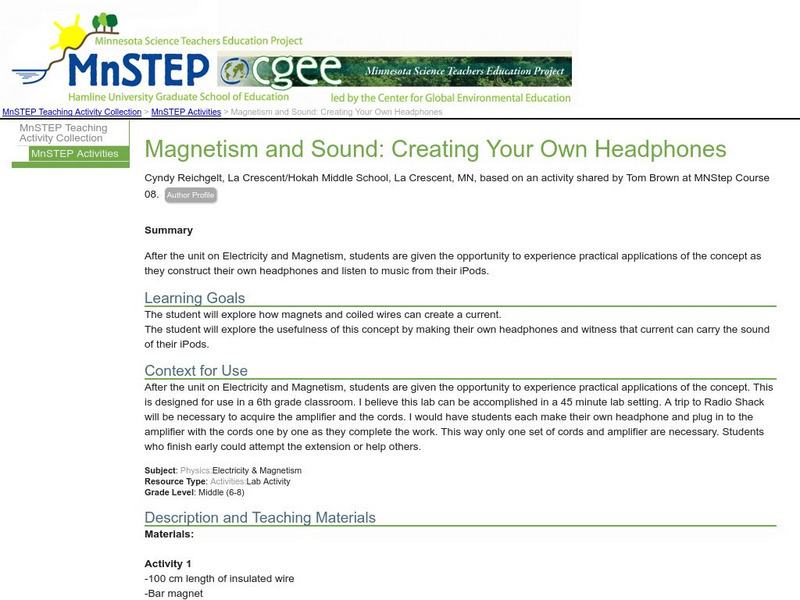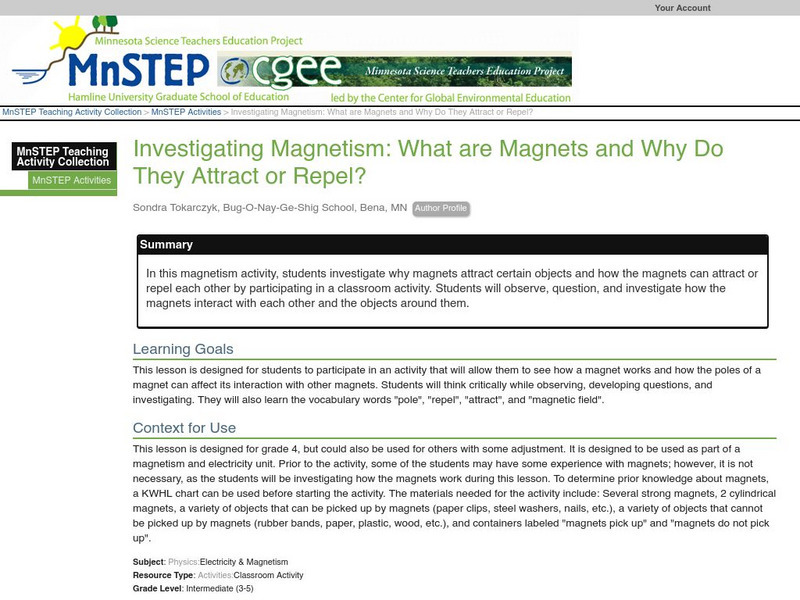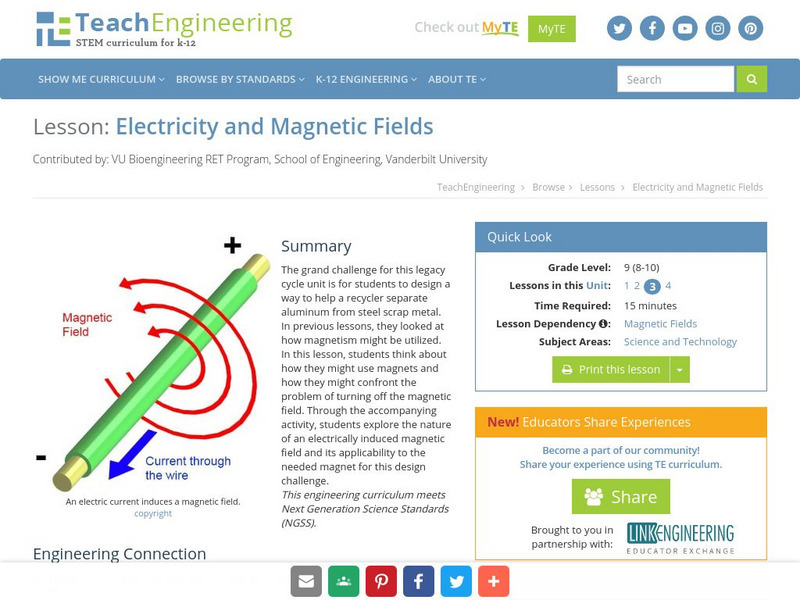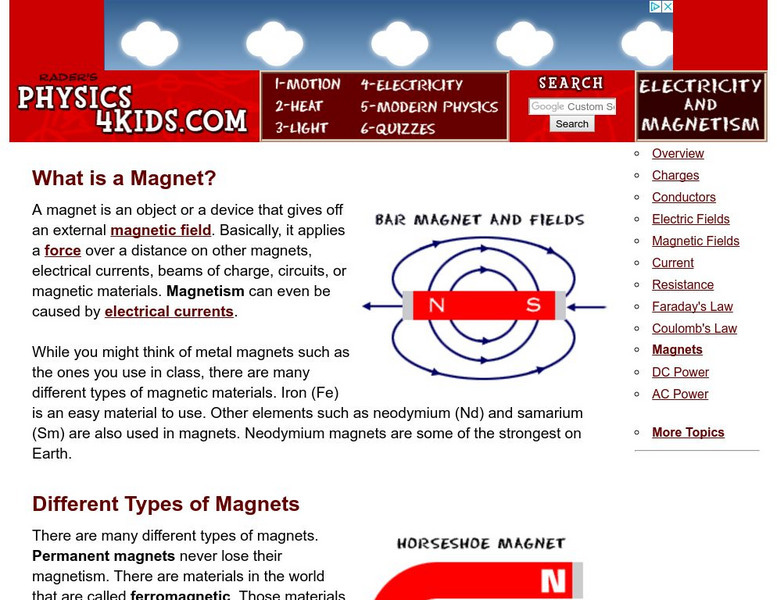Hi, what do you want to do?
Curated OER
Applied Science - Physics Pre-Lab
Young scholars describe the science of physics. In this Physics activity, students observe examples of physics within their classroom. Young scholars create a definition for physics.
Curated OER
Physics Post-Lab
Students explore physics. In this science instructional activity, students discuss physics in their everyday lives. Students complete a physics worksheet.
Curated OER
Micro-organisms
Students examine how micro-organisms are living organisms that are often too small to be seen. They explain that micro-organisms may be beneficial or harmful.
Curated OER
How We See Things
Students explain that mirrors reflect light. They examine how when a beam of light is reflected from a surface, its direction changes.
Curated OER
Changing Circuits
Students participate in an online lesson to explain how to make bulbs brighter or dimmer in a series circuit by changing the number or type of components.
Curated OER
Conserving Energy Resources
Seventh graders research on energy conversion. After they have researched several types of energy resources, teams of two to four create posters which depict how these resources can be conserved.
Curated OER
Applied Science- Physics
Students investigate how something at home uses physics to work. In this practical physics lesson, students develop a theory of their own to conclude how an object might work. This lesson plan includes a worksheet.
Curated OER
The Invention of the Telegraph
Students study the history of telegraph invention. In this technology lesson plan, students build their own Morse Telegraph System. They discuss how this invention benefits the society.
Curated OER
Multivariable Calculus/ Bonus Quiz 11
In this math learning exercise, students practice finding the solutions to the problems that focus upon the differential operators of vector fields.
New York Times
New York Times: Crossword Puzzle: Electricity & Magnetism
The New York Times Learning Network has developed interactive & printable crossword puzzles. The theme of this puzzle is magnetism and electricity. Requires Java.
Science Struck
Science Struck: The Relationship Between Magnetism and Electricity
Provides a short explanation of the similarities between magnetism and electricity, the properties of their fields, and the effect they each have on a charged particle.
Science Education Resource Center at Carleton College
Serc: Magnets and Electricity: Creating Magnetism With Electricity
Students will work in small groups to design at least one complete circuit using multiple materials. They will record their observations of how they created an electrical circuit using diagrams and notes in their journals. Using a...
Georgia Department of Education
Ga Virtual Learning: Magnetism and Electromagnetism
In this interactive learning module, students learn about the basic properties of magnetism. Practice problems are provided for ongoing assessment.
The Wonder of Science
The Wonder of Science: Ms Ps2 5: Electric, Magnetic, and Gravitational Fields
Work samples, phenomena, assessment templates, and videos that directly address standard: MS-PS2-5: electric, magnetic, and gravitational fields.
Thomas Jefferson National Accelerator Facility
Jefferson Lab: Reading Passages: Charges and Electricity
Read and fill in the blanks of this passage explaining charges and electricity. Each blank has a dropdown menu with choices. When you finish, click CHECK MY ANSWERS. If you pick a wrong answer, the right answer will be displayed along...
National High Magnetic Field Laboratory
Magnet Academy: William Gilbert
William Gilbert was an English physician and natural philosopher who wrote a six-volume treatise that compiled all of the information regarding magnetism and electricity known at the time. The work included descriptions of many of...
Utah State Office of Education
Utah Science: Magnetized
A unit all about magnets! Explore magnetic forces, types of magnets, and more through these informative activities.
National High Magnetic Field Laboratory
Magnet Academy: Carl Friedrich Gauss
Although he is best known as one of the greatest mathematicians of all time, Carl Friedrich Gauss was also a pioneer in the study of magnetism and electricity. To facilitate an extensive survey of terrestrial magnetism, he invented an...
Science Education Resource Center at Carleton College
Serc: Magnetism and Sound: Creating Your Own Headphones
Middle schoolers will explore how magnets can create a current by making their own headphones and listening to music from their iPods.
Science Education Resource Center at Carleton College
Serc: Investigating Magnetism: What Are Magnets and Why Do They Attract or Repel
In this magnetism activity, students investigate why magnets attract certain objects and how the magnets can attract or repel each other by participating in a classroom activity. Students will observe, question, and investigate how the...
National High Magnetic Field Laboratory
Magnet Academy: Electric Range 1892
From the Stone Age to today, the search is constantly underway for better, more efficient ways to cook food. Reflecting many of the advances in science and technology, the electric range has become a popular choice for homes and businesses.
TeachEngineering
Teach Engineering: Electricity and Magnetic Fields
The grand challenge for this legacy cycle unit is for students to design a way to help a recycler separate aluminum from steel scrap metal. In previous lessons, they have looked at how magnetism might be utilized. In this activity,...
Science Education Resource Center at Carleton College
Serc: Investigating Magnetism
In this physical science lab, students will investigate ways to control an electromagnet, how adding coils of wire can change the magnet, and the differences between an electromagnet and a bar magnet. Students will explain in their...
Physics4kids
Physics4kids: Electricity and Magnetism: Magnets
Here is the site to help you learn all about magnetism and magnets! Find out what a magnet is and how it works. Click for additional details on charges, conductors, magnetic fields, currents, resistance as well as the Laws of Faraday and...
















